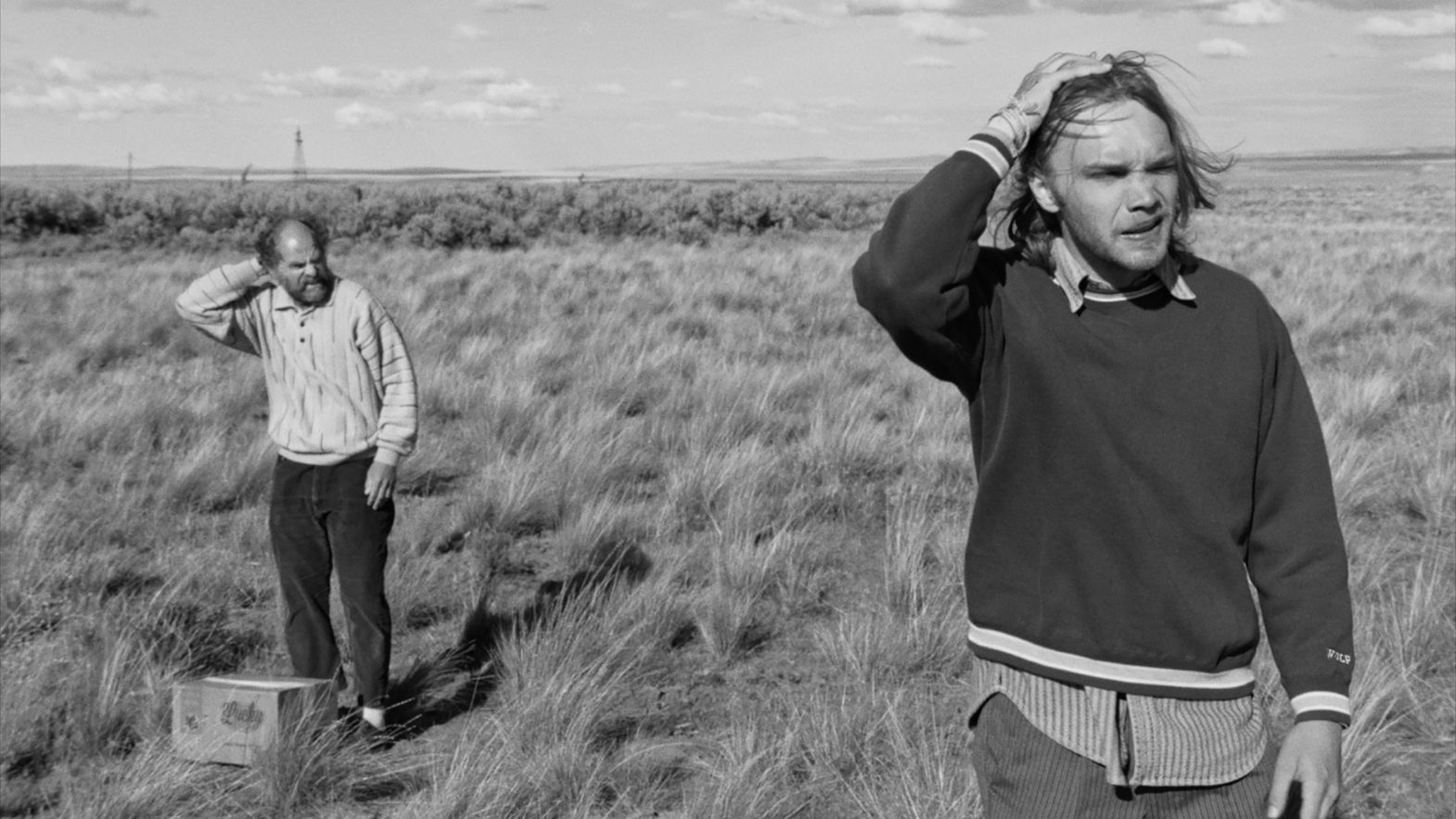It starts with a suicide note. Or, to be precise, a suicide tape. Herman sits in his pick-up truck and speaks into a Dictaphone, leaving a message for his son Nate, whom he hasn’t seen or spoken to since he left home when Nate was a child. “I want you to know these things about me because I want you to know me,” he records himself saying, “so that I’m not just your father that killed himself”.
The title of Jeff Rutherford’s debut feature alludes to A Perfect Day for Bananafish, the famous short story that kick-started JD Salinger’s career. Suicide is a central theme in both, but whereas Salinger concludes with the act, rendering it a finality, Rutherford opens with its attempt. Both stories are largely a pas de deux, with the interaction between two characters offering oblique contextualization for the desperate decision at the narrative’s heart. One fundamental difference is that Rutherford’s characters – and, by extension, their predicaments – belong to America’s disenfranchised class.
On the car seat beside Herman are a revolver, a Bible and a mobile phone. When the phone rings, interrupting his monologue/confession, it’s as if it were divine intervention. The rest of the film presents an opportunity for atonement and reconciliation, a space for Herman and Nate to tell each other things they’ve kept bottled up for years. Of all places, they decide to meet in a cemetery. Such is the film’s unique variety of deadpan humor, humane and as dry as the Oregon landscapes that the characters will traverse in search of Nate’s young son Ralph.
These landscapes Rutherford and his cinematographer Alfonso Herrera Salcedo photograph in images are expansive despite the boxy 4:3 frame. The low contrast black-and-white and the barrenness of the terrain create a purgatorial atmosphere; as we watch the estranged father and son trudge across sweeping plains, over rolling hills and canyons, into the depth of a forest, and back again to that godforsaken cemetery, their two figures appear like lost souls roaming an earthly limbo.
Rutherford’s debut belongs to a lineage of US independent cinema that includes such milestones as Monte Hellman’s The Shooting (1966) and Gus Van Sant’s Gerry (2002), as well as foreign implants like Bruno Dumont’s Twentynine Palms (2003). Though aesthetically and philosophically disparate, these films all put humans against the vast American landscape as a means of existentialist meditation. A Perfect Day for Caribou is a rare hopeful example, contemplating the eternal recurrence of the sins of the father in order to probe the possibility of breaking the chain.
Giovanni Marchini-Camia
Curiosity
Charlie Plummer, who plays Nate in the film, was John Paul Getty III in Ridley Scott's All the Money in the World (2017), and won the Marcello Mastroianni Award in Venice in 2017 for Lean on Pete.
